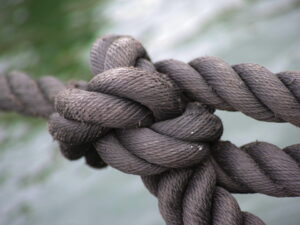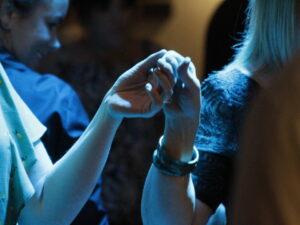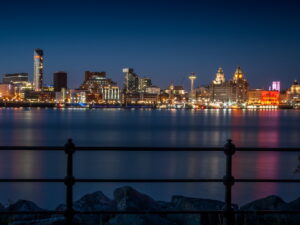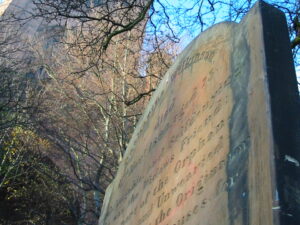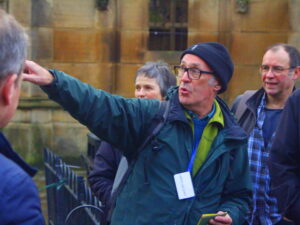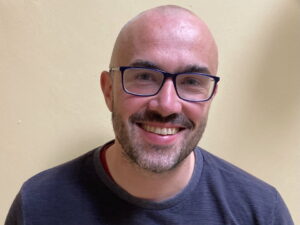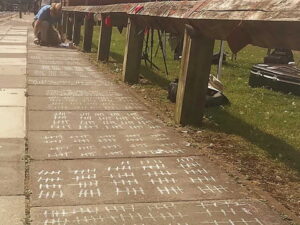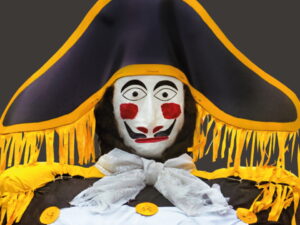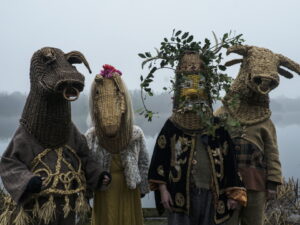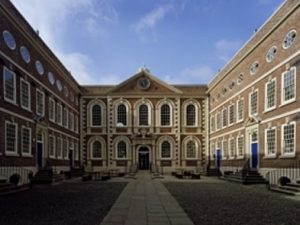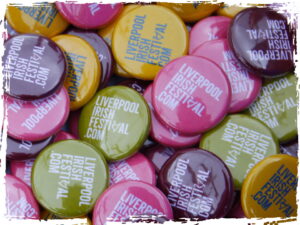
From Ireland, to Liverpool -and across the world- exchange celebrates that which brings us closer or drives us apart; to consider identity, heritage and play.
Theme
This year we continue the theme of “exchange”; feeling we hadn’t got a fair crack at it in 2020! Today ‘exchange’ means things that it didn’t two years ago. It means snatched conversations through black mirrors; recognisable faces lost behind masks and elbow bumps instead of handshakes. Over the summer exchanges took some violent turns, with politicised attacks on vulnerable people (LGBTQI+ and Black footballers to name but two groups), marring the safety of our streets.
Regardless of how you survived lockdown -be it via WhatsApp calls, Skype/Teams meetings or Zoom video chats; through social bubbling and isolations; grocery deliveries and park walks- we’re pleased to see you’ve come through. We hope this year’s Liverpool Irish Festival will provide you with a space to exchange connections, views and stories. To re-engage with your community and to laugh, sing, dance and chat as well as learn, listen and watch.
Exchanges
We have been making artistic exchanges all year. Having helped Irish Community Care and CARA with #OperationNollaig for Christmas, we kicked off 2021 working on St Brigid’s Day celebrations for 1 Feb; followed by #GlobalGreening (partnered with Tourism Ireland) for St Patrick’s Day and Irish Roots (with #IamIrish) in May. Having secured National Lottery Heritage Funds we began project work on the Liverpool Irish Famine Trail in the summer. All of this work is formed in exchanges; in conversations between people, places and ideas. Critically, the continuation of the Cultural Connectedness Exchange has meant that we are in regular contact with Irish and Northern Irish artists and cultural commissioners -all year ‘round- developing new ideas, projects and conversations.
In 2021, networks have been key to learning and improving our work. Creative Organisations of Liverpool, Baobab and March for the Arts have led the way in collaboration and sector care check-ins; as well as Black Lives Matter responses; equality, diversity and inclusion practices and keeping independent work protected, safe and valued. These exchanges have shaped our thinking, improved our welfare and wellbeing and kept us in touch, all whilst being physically isolated, thus ‘exchange’ has kept us afloat as a process, a concept and a set of actions.
Story sharing
We believe exchange is at the root of all storytelling. The teller must understand who might listen and who their story might affect. This paper -and our programme- is full of stories, just waiting to be swapped with you. They involve Liverpool Irish families; Chinese men forcibly deported from Liverpool, separated from Irish wives; artists speaking about how and why they create; folklore and myth; hard histories and inspirational futures. They are told to us via pictures and music, the written and spoken word, sound and vision. With each there is a ‘teller’ and a ‘recipient’ and -in sharing- there is exchange.
A significant exchange we are at the start of telling the story of, is that of the Irish Famine. 1.3m-1.5m people exchanged their home in Ireland to settle in Liverpool or move on from. A trail and memorial marking the events were generated in the 1990s, but have since been outflanked by city growth, the internet and time. We are beginning a series of exchanges, engaging in research and source materials, locations and custodians, communities and technology to revitalise that trail and commemorate Ireland’s exchange, impact and influence on the city.
Responding to this year’s release of the Mother and Baby Homes Commission of Investigation Final Report -and the violent, brutal and divisive exchanges it was commissioned to report on- we have partnered with the National University of Ireland (NUI) to develop (and continue) the Festival’s In:Visible Women programme. The day includes sessions in which we will see and bear witness; hear and listen; locate and learn, interpret and express; reflect and hope. The processes are important in order to respect the trauma people endured; recognise and prevent future institutionalised malevolence; heal and progress. In particular, we have linked to the work of the Tuam Oral History Project.
Programme
Liverpool Irish Festival has both ‘in real life’ and digital-only events. We think it is an exciting programme full of new voices, old friends and top-quality creativity! We hope you will agree. With roughly 40 events, spanning art disciplines, there is something for everyone. We have gifted 20,000 homes with our Festival paper, which contains 20+ commissions; sharing more stories and helping you to dig deeper in to some of the events coming up.
As a 10-day Festival, it can be difficult for us to tie in with long-standing programmes, such as the Decade of Centenaries, which the Government of Ireland is running. 2021 marks a number of important anniversaries for the formation of the Republic and Northern Ireland and in certain events we do discuss aspects of this history. For more about the official programme, please visit decadeofcentenaries.com.
We hope you will join us in the physical and virtual spaces we build; to meet and mingle, exchange stories and enjoy a communal event. Ours is a Festival made of stories. It is about Irishness and reveals people searching for -and finding- their identity. Congratulations on coming through the difficult times. We can’t wait to see you and to have fun. In the meantime, gabh cùram agus fuirich sàbhailte/take care and stay safe!
Use our handle @LivIrishFest or hashtag #LIF2021 on all platforms to get in touch or comment on the Festival as we go along.

